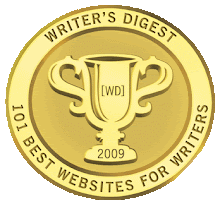
Today I have the pleasure of interviewing Robert Lynch, co-author of
Daniel’s Dream. Robert has just released the book written by himself and Charles Riley as a team effort. Our discussion will include not only the ins and outs of two writers working jointly, but some details about this inspiring true story.
Carol Denbow: Greeting Robert, and thank you for agreeing to do this interview. Your book,
Daniel’s Dream is an emotional detail of your son, his death, and you and your lovely wife Marian’s quest to establish a non-profit foundation in honor of your late son, Daniel.
Please start by telling us a little about your son Daniel.
 Robert Lynch:
Robert Lynch: To start to learn and understand Daniel, I must start at the beginning. My wife Marian and I had a complete and full family. Vicki our oldest daughter age 23, Mark our son age 21, and Bonnie the youngest age 19 when we learned another child was on the way. So, the fact that we were going to have another child at our age was more than shocking. It took some time and effort to accept the fact that another soul was joining the family.
Daniel was born on May 24th 1982. As with most babies, the first years can be challenging and demanding. But, I can say, that from Daniel's birth until his death he had a wonderful disposition and there was always a smile on his face! Rather than being a challenge in those early years, he added so much to everyone in the family that it's impossible to relate. The older children now had a young brother and they treated him with such love—they were all so happy. I could never imagine that this addition to our family could bring such meaning to our lives. By age two, it was very evident to me that Daniel possessed a superior personality and he learned things quickly and in detail. We were surprised at the things he was able to comprehend.
He was small as a youngster and always the smallest in his class. This bothered him because children can be mean and tend to keep the “runts” at arms length; not including them in activities. But he had an ability to excel in some way at every thing he applied himself to. If it was something he liked, he would really excel. If it was something he wasn't particularly fond of, he would meet the challenge and never give up. Athletics was one area that he didn't necessary like, but in school when he would have to participate in a sport, he would do his best and hold his own. It became very apparent he would keep this attitude through his life.
Carol Denbow: I got to know Daniel through reading the book—I think I would have really liked this young man. If you are able, please tell us how you lost Daniel.
Robert Lynch: While attending college in San Francisico, Daniel was working at the Triton Hotel in the same city to help with the cost of his education. He had just moved over to Oakland, California because rents were much cheaper there. One morning Daniel was on the way to the BART train station to go to school and he was attacked and shot to death. It was ruled as a “mistaken identity” case. The killer was in a gang and thought that Daniel was someone he had been in a fight with the previous week. It was a senseless loss of life of a beautiful person who lived just the opposite of the gang member.
Carol Denbow: Daniel was an amazing young man whose life clearly had purpose. I understand from reading the book that following Daniel’s tragic death, you and Marian set out to establish a non-profit art foundation to help other struggling art students achieve a degree by providing much needed supplies as well as college scholarship funds. Tell us how it made you feel once you accomplished this task.
Robert Lynch: We wanted something positive to come out of this terrible tragedy. In Daniel's honor and memory, we desired to set up a program that would help other art students achieve their dream to pursue an education in the field of art. The journey in establishing the Daniel Robert Lynch Art Education and Scholarship Program was quite an effort, but it has become a blessing in many ways. Within the past four years, six art students have received scholarships, giving them the opportunity for an education in the art field. In order to win the scholarship, these students had to meet certain requirements. All of these students were from low income families who could not have provided a higher education for their children. Each student had amazing scholastic achievements and art portfolios, and were very deserving of a scholarship.
The Cache Education Foundation accepted this program into their foundation as a non-profit entity. This foundation is outstanding in helping education through grants and donations to the school system. The DRL Art Program is a small entity, but specializes in strengthening art in the school program through grants to art teachers for programs and equipment. We are very proud of Daniel's art program and what it is doing to strengthen art education and provide scholarships.
Carol Denbow: Now that our readers know a little about your story, can you please tell us when you decided to write
Daniel’s Dream and what that meant to you and your family?
Robert Lynch: We had recently moved to Coarsegold, California from Logan, Utah to be closer to our other children. I visited a coffee shop that co-author Charles Riley owned and we immediately became friends. During various visits, Charley and I talked about my son Daniel and his death. Charley is an author and I had the pleasure of reading the draft manuscript of a story he was writing,
“The Boys From Arlin.” I was so impressed; it was such a gripping story. Charlie's book will be published this year and I predict the readers will find it very enjoyable. Charlie and I continued talking and discussing Daniel's life, the fact that Daniel is being referred to and remembered as “the student that got murdered in Oakland” really bothered me. He was so much more and deserved to be known and remembered for who he was. I'm told by people that it doesn't matter what other people think or say, it's how you remember him that counts. But people just can't imagine the hurt and failure you feel that such a talented and dedicated young person's life is over, and society will never know about this young man. Charlie was the person who suggested that I write a book about Daniel. The more we talked and the more he persuaded, I finally decided to ask about him writing the book with me. He's the writer, and a good one, so we made the decision to do it.
Carol Denbow: Robert, having lost a son myself, I know it is sometimes difficult to “re-live” the loss. Did publishing this book hurt or help heal your suffering?
Robert Lynch: It's almost been 5 years since Daniel's death, and I can’t honestly say that I had to relive the loss. I think of Daniel ALL the time, every day. I go to sleep at night thinking about him. I've had to start
taking sleeping pills to even get to sleep. Five years is a long time, and when I wake up in the morning Daniel is on my mind. So I haven't had to re-live it, it has always been there.
Carol Denbow: Your co-author is Charles Riley. How did you meet and decide to co-write the book rather than do it alone?
Robert Lynch: I touched on that before. I've never written a book and wouldn't try to do so myself. To have someone like Charlie offer to help write the book, I'd been very foolish not to take Charley up on it, since he was willing and available.
Carol Denbow: How did you and Charles work together on this project? In other words, you spoke, he wrote, or possibly you wrote and he re-wrote? Or is he an active part of the story?
Robert Lynch: I wrote the basic facts of the book, and turned it over to Charlie. He wrote the draft in his own writing style and gave it to me to read, then we discussed it. He took my comments and fine-tuned them until I was satisfied with what he had written.
Carol Denbow: After all is said and done, would you recommend to our readers who are considering this path to co-author a book rather than tackle the project on their own? Was it helpful to have a partner writer?
Robert Lynch: Yes. With my experience, I'd recommend a co-author, if available. But I feel writers should be cautious about it. As Charlie pointed out to me, most authors are individuals that have a strong conviction on their writing style. As he noted up front, if you give your book in draft form to ten people to read, you'd receive ten different suggestions on how to make it better. The one thing we agreed to up front was that this was to be MY story. He'd make suggestions but I had the final say. So the question about if I would recommend doing a book with a co-author or not? Yes, but it would depend upon the attitude of the author. Two people agreeing an anything is rare in today's society. So I think the ground rules should be set upfront, and if you don't like something, speak your mind, but remember your agreement.
Carol Denbow: The past few years have certainly been trying for you and your family. Please accept my condolences for your enormous loss and suffering. We all hope
Daniel’s Dream is successful so students such as Daniel have the opportunity to fulfill their dreams in the future. Thank you for sharing your incredible story with us and for telling our writers “how it is” to co-author a book.
Daniel’s Dream is available through
Amazon.com, the Lynch’s Website at
http://www.danielsdream.webs.com, in
Kindle and
Barnes & Noble Nook Book format, and wherever fine books are sold.
Please learn more about the Daniel Robert Lynch Art Education and Scholarship Program by visiting
http://www.dansinspiration.com. All donations, no matter how small, are appreciated.







































 Member
of
Member
of